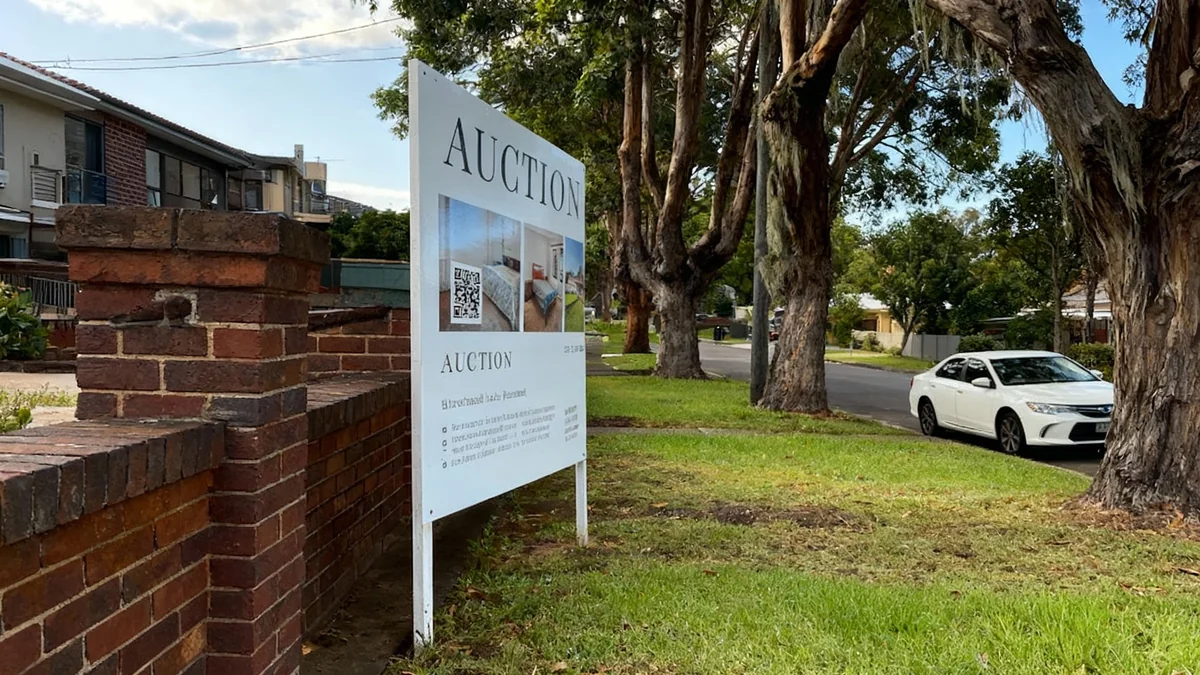Prospective homebuyers in Sydney are reporting widespread frustration over the practice of 'price baiting,' where properties are advertised at prices significantly lower than what sellers are willing to accept. This tactic, also known as underquoting, is leaving many buyers feeling demoralised after spending time and money attending auctions for homes that were never truly within their budget.
Despite being illegal in Australia, data suggests the practice is particularly prevalent across Sydney's property market. On one recent Saturday, a home in Punchbowl sold for 31% above its online price guide, while another in Burwood sold for 28% more. This growing gap between advertised prices and final sale results is prompting calls for stronger consumer protection and regulatory oversight.
Key Takeaways
- 'Price baiting,' or underquoting, is the illegal practice of advertising a property for significantly less than the seller's reserve price to attract more buyers.
- Data analysis indicates that nearly 60% of agents with significant guide-to-sale price gaps are based in New South Wales, primarily in Sydney's west and inner west.
- On a single Saturday, half of the 287 properties sold in NSW went for at least 10% over their advertised price guide.
- The NSW government has acknowledged the issue, establishing a task force and promising stronger laws to protect consumers from misleading conduct.
A Weekend of Wasted Hopes
For many aspiring homeowners in Sydney, the weekend auction circuit has become an exercise in frustration. Buyers arrive at properties, having done their due diligence based on an advertised price, only to witness bidding soar far beyond the initial guide. One unsuccessful bidder, Tina, expressed a sentiment shared by many after an auction for a duplex in western Sydney advertised at $1 million ultimately sold for over $1.3 million.
"They'll tell you anything to get you here," she said. "Once they do, it's a totally different story."
This scenario is not isolated. In Belmore, a five-bedroom house attracted bids up to $1.72 million, well over its $1.5 million guide, yet it was passed in because the offer did not meet the vendor's expectations. The constant disappointment is taking a toll on buyers, who describe the process as "exhausting" and "demoralising."
Data Points to a Systemic Problem
While some agents attribute large price discrepancies to high demand in a competitive market, data suggests a more entrenched issue. Henry Pedersen, founder of the property data platform Homer, has been tracking the pricing history of every property listed for sale in Australia. His findings reveal a clear pattern.
According to data from Homer, over 220 individual selling agents in Australia this year have seen their properties sell for an average of more than 10% above the initial price guide. Nearly 60% of these agents operate in New South Wales.
Pedersen argues that while individual auction results can be unpredictable, the consistent trend of underquoting points to a "widespread behavioural problem." He notes that on one recent Saturday, half of the 287 properties sold in NSW fetched prices at least 10% higher than their guides.
"Every single property is clearly different, and every agent will give you that justification that it's impossible to know... what's going to happen," Pedersen stated. "But the reality is, on average, it all should come out in the wash."
The Agent's Dilemma
Real estate agents are legally obligated to act in the best interest of the seller, which means achieving the highest possible price. However, some agents admit they face pressure to underquote to remain competitive. An anonymous agent from Sydney's inner west explained that vendors often push for lower price guides.
"It actually comes down to the vendor agreeing to it," the agent said. "They know that they have to compete with the property down the road that is being underquoted, so that's where the pressure comes from."
Frank Russo, a Sydney-based buying agent, described the practice as "highly misleading" and "unethical." While he respects that selling agents have a duty to their clients, he believes the onus falls on buyers to protect themselves.
"I don't think you need a genius or an expert with years and years of experience to get a rough idea where this property logically sits in the current market, and then understand that that price guide they're giving is not accurate," Russo advised.
Calls for Stronger Regulation
The New South Wales government has publicly acknowledged the prevalence of price baiting and its negative impact on both consumers and the real estate industry's reputation. Current penalties for agents caught underquoting in NSW include fines of up to $22,000, forfeiture of commission, and the potential loss of their professional license.
What is Underquoting?
Underquoting is a practice where a real estate agent advertises or suggests a price for a property that is less than their reasonable estimate of its likely selling price. It is also considered underquoting if the advertised price is less than a formal offer that the seller has already rejected. The practice is illegal under Australian Consumer Law.
NSW Fair Trading Minister Anoulack Chanthivong confirmed that the government is taking action. "This government has made no secret of the fact that we need stronger underquoting laws to protect consumers and crack down on real estate agents who want to do the wrong thing in New South Wales," he said in a statement.
An $8.4 million task force has been established to tackle the problem, and further regulatory changes are expected to be announced soon. For the thousands of hopeful buyers navigating Sydney's challenging market, these changes cannot come soon enough.





